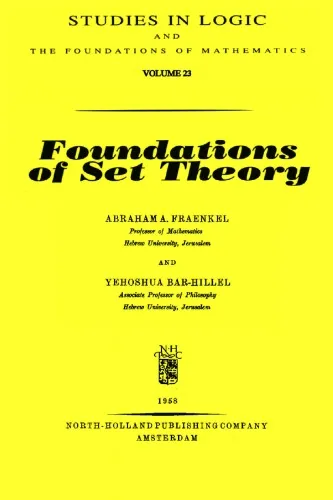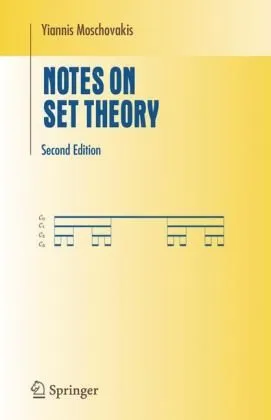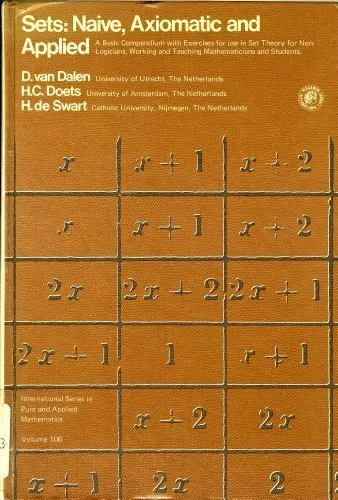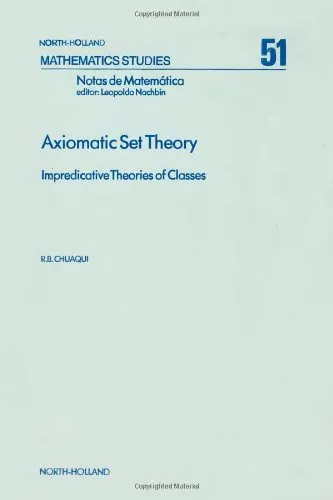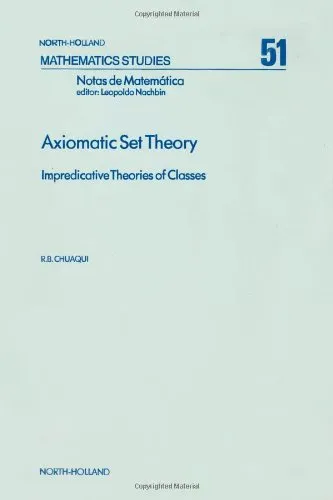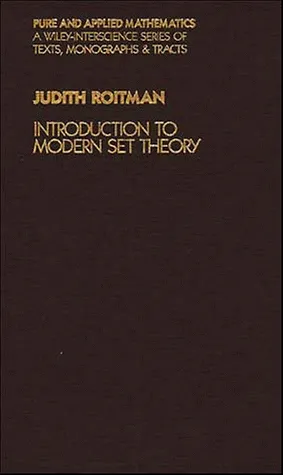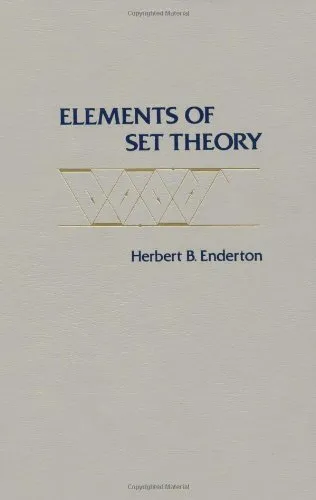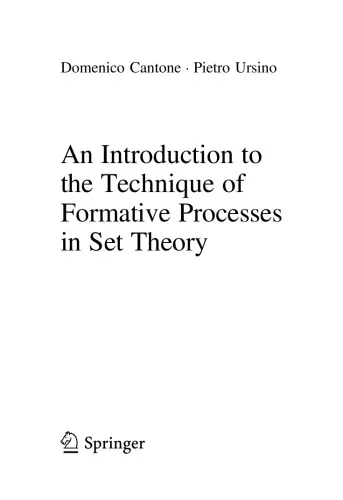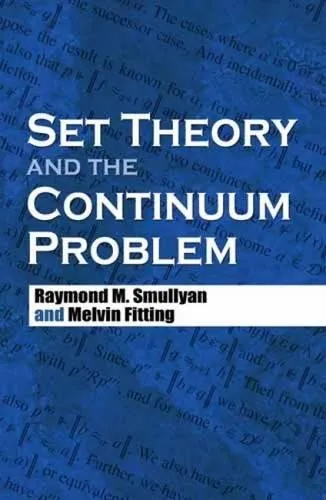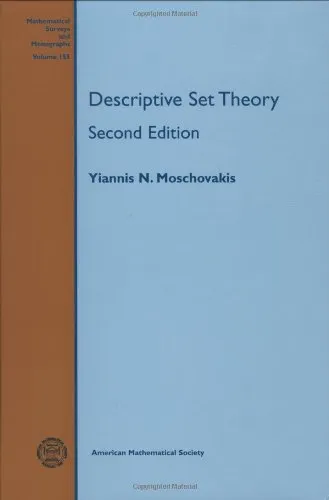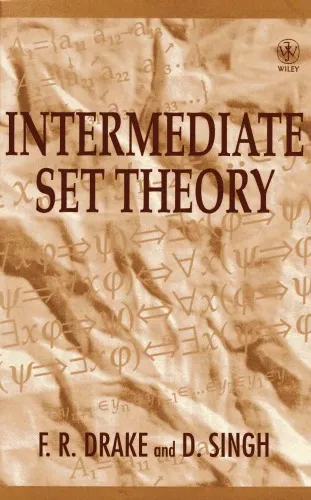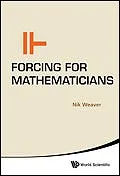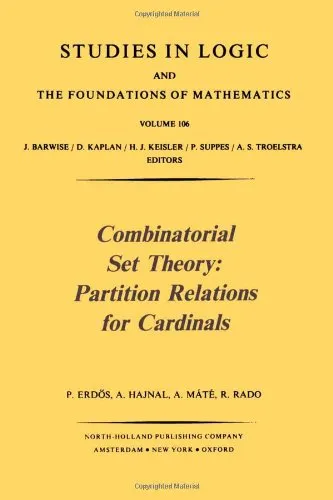Foundations of Set Theory
4.8
Reviews from our users

You Can Ask your questions from this book's AI after Login
Each download or ask from book AI costs 2 points. To earn more free points, please visit the Points Guide Page and complete some valuable actions.Related Refrences:
Introduction to "Foundations of Set Theory"
"Foundations of Set Theory" by A.A. Fraenkel and Y. Bar-Hillel is a cornerstone in the field of mathematical logic and set theory. Building upon the pioneering work of Georg Cantor, this book provides a rigorous and exhaustive examination of the foundations of set theory, a critical branch of mathematics that underlies the structure of modern logic, mathematics, and computer science. Distinguished by its depth, clarity, and historical significance, this work is an essential resource for mathematicians, logicians, and philosophers alike.
Detailed Summary of the Book
Set theory, as explored in this book, serves as the bedrock of mathematical thought, forming the framework for understanding and building virtually every branch of mathematics. "Foundations of Set Theory" begins with a thorough examination of historical developments leading to modern set theory, discussing early contributions by Cantor and the subsequent formalization by Zermelo, Fraenkel, and others. The book’s primary focus lies on axiomatic set theory, particularly the Zermelo-Fraenkel system with the Axiom of Choice (ZFC), which has become the most widely accepted foundation of contemporary mathematics.
The authors meticulously analyze the axioms of ZFC, including those of extensionality, pairing, union, and regularity, breaking down their logical implications and relationships. They explore the cumulative hierarchy of sets, a crucial concept in understanding how sets are constructed and organized. Additionally, the book delves into advanced topics such as ordinal and cardinal numbers, the continuum hypothesis, and Gödel’s and Cohen's pioneering work on the independence of certain propositions in set theory.
A distinctive feature of the book is its historical and philosophical insights. Fraenkel and Bar-Hillel examine controversies and paradoxes (e.g., Russell's paradox) that arose during the genesis of modern set theory. The authors connect these paradoxes to their resolution through axiomatic systems, highlighting the interplay between foundational thought and technical rigor.
Key Takeaways
- The evolution of set theory from Cantor’s intuitive ideas to the formal framework of Zermelo-Fraenkel axioms.
- A thorough exploration of axioms that govern the logical construction and consistency of sets.
- Insight into the independence proofs of significant mathematical propositions, including Gödel's and Cohen's contributions to the continuum hypothesis.
- An understanding of how axiomatic set theory serves as a foundation for all of mathematics.
- Philosophical and historical perspectives on the pivotal developments in mathematical logic.
Readers will gain both a robust mathematical toolkit and a historical-philosophical understanding of the growth of set theoretical thinking, making this book a unique blend of technical and reflective content.
Famous Quotes from the Book
"Set theory is not just the foundation of mathematics, but also a core source of philosophical inquiry into infinity, abstraction, and existence."
"The axioms of set theory formalize the intuitive notion of a collection while providing a safeguard against paradoxes that troubled early mathematics."
"The continuum hypothesis is emblematic of the interplay between logic, intuition, and formalism—it challenges us to accept the independence of truth from proof."
Why This Book Matters
"Foundations of Set Theory" is not merely a textbook but a testament to the intellectual rigor and unyielding curiosity of mathematicians and logicians who sought to address deep questions about the nature of mathematics itself.
Through this work, Fraenkel and Bar-Hillel highlight the relevance of axiomatic set theory as the very fabric upon which modern mathematics is built. With its detailed exploration of the ZFC axioms, the book lays the groundwork for proving consistency and correctness in mathematics. Importantly, it provides valuable insights into how mathematical proofs and logical arguments are constructed, making it indispensable for researchers, educators, and students in the field of mathematical logic.
From a philosophical perspective, the book serves as a bridge between the abstract world of mathematics and the intricate reasoning needed to address foundational questions. Topics such as the continuum hypothesis and its independence from ZFC showcase the inherent limitations of formal systems and pose profound philosophical questions about the nature of truth and mathematical existence.
In sum, "Foundations of Set Theory" matters because it not only provides clarity on some of the most challenging aspects of mathematics but also inspires further exploration into the logical and philosophical questions that continue to shape the field today.
Free Direct Download
You Can Download this book after Login
Accessing books through legal platforms and public libraries not only supports the rights of authors and publishers but also contributes to the sustainability of reading culture. Before downloading, please take a moment to consider these options.
Find this book on other platforms:
WorldCat helps you find books in libraries worldwide.
See ratings, reviews, and discussions on Goodreads.
Find and buy rare or used books on AbeBooks.
1459
بازدید4.8
امتیاز0
نظر98%
رضایتReviews:
4.8
Based on 0 users review
Questions & Answers
Ask questions about this book or help others by answering
No questions yet. Be the first to ask!
